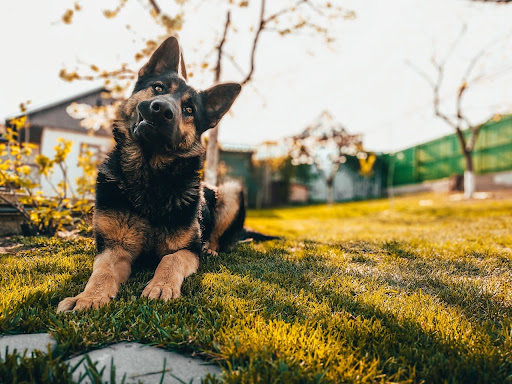Image via Pexels
Transitioning to cooler weather not only requires humans to adapt; it also means our pets will be going through some changes. You can help your senior pet adapt by addressing any potential health issues such as allergies, pain, and anxiety. Look for budget-friendly supplements and accessories to help your pup get ready for fall and winter.
Pesky allergies
Seasonal allergies can be very disruptive for humans, and just like us, animals experience sneezing, itchy noses, and other irritations caused by the changing of the seasons. You can help your pet deal with these allergy symptoms by giving them antihistamines and reducing their exposure to known allergens.
The first thing to do if you suspect your dog is experiencing allergies is to check for symptoms: water eyes, runny nose, sneezing, respiratory congestion, and itchy ears are all signs of allergies. For dogs, paw licking is another telltale sign of allergies.
You can have your pet tested for allergies at the vet—both skin and blood tests can be used to diagnose allergies. If your pet is diagnosed, there are few methods for treatment: you can use over-the-counter antihistamines, have your dog groomed frequently to remove allergens lurking in their fur or on their paws, and avoid walking through areas where known allergens exist.
Food allergies for dogs
If you notice allergy symptoms that don’t seem to coincide with seasonal changes, Modern Dog Magazine notes that it’s possible that your pooch may have a food allergy.
Some of the most common food allergens in dogs include eggs, wheat, dairy, chicken, and beef. If you feed your dog any of these foods, it’s important to monitor their behavior. Similarly to seasonal allergies, you might notice itchy skin, ear infections, or paw biting if your dog is experiencing a food allergy.
Your vet will be able to help diagnose an allergy through an elimination diet, and if it turns out that their symptoms are food-related, you can change their food accordingly. Keep in mind that senior pets still need formulas created specifically for aging pets, so try to find something that fits both needs.
Anxious pets
Dealing with an anxious pet can be difficult because it’s not always clear what’s causing the anxiety. Oftentimes, dogs become anxious when left alone, a condition known as separation anxiety. This can become more pronounced when their humans leave for work or school in the fall.
If you suspect your dog has separation anxiety, Canis Bonus notes there are a few things you can do to help him recover. One of the best methods is subthreshold training, part of which means you never let your dog experience panic due to being left alone. If you have to be away from your dog, hire a dog sitter, or ask a friend to watch him.
You can easily find dependable pet sitters through apps like Wag, Rover, and Care.com. Keep in mind that if your phone is outdated, you may not be able to run these apps effectively. If you need to purchase a new device, make sure you protect it with a durable cover that can minimize screen damage.
You can also buy CBD supplements or ask your vet about anxiety medication for your dog; both can help considerably with separation anxiety.
Coping with pain
It can often be very difficult to know if your animal is experiencing pain. Dogs are masters at covering up their pain, which means you need to be wise to their behavior because it might show up differently than you’d expect.
Senior dogs who are in pain can exhibit some of the following signs: aggression or antisocial behavior, changes in eating or sleeping habits, being more vocal (howling, barking, etc), or mobility issues. If you suspect your pet is in pain, take them to the vet and ask for an exam.
As your dog transitions to the fall and winter months, watch out for allergies, anxiety, and pain. Take stock of their symptoms and make an appointment with your vet clinic if you’re unsure. Take advantage of over-the-counter antihistamines to save money, and consider new training methods if your dog has separation anxiety.

